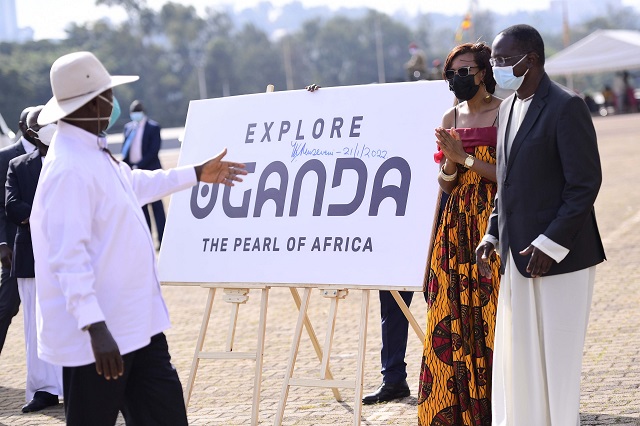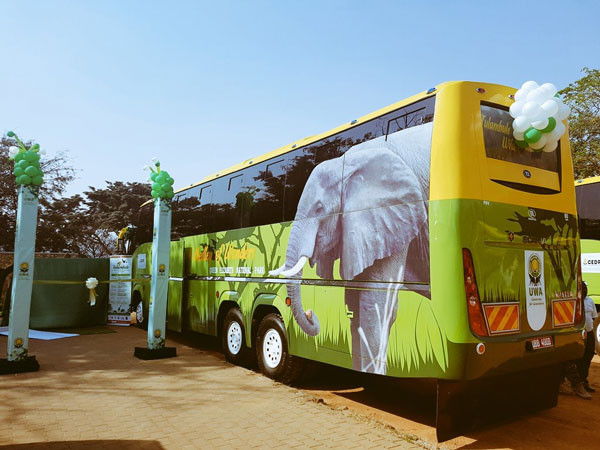
SPECIAL FEATURE | After the full opening of the economy in January 2022 by President Yoweri Museveni, many rejoiced as the uncertainity that had been brought up by the Coronavirus (Covid-19) pandemic for almost two years had to come to an end.
While few industries were spared by the impact of the COVID-19 pandemic, the travel industry as fragile as it is, was ripped into shreds.
From total lockdowns, border closure, to bans of general transport and inter regional crossing among others, the travel Industry in Uganda and world over indeed had to fall short. This has been described as the greatest crisis it has ever faced ever.
Prior to the coronavirus outbreak, Uganda’s travel industry (tours and travel) had continuous growth and had been the biggest forex earner over the years.
Tourism was recently surpassed by Gold as the pandemic broke out. In the past, there had been different crises such as Ebola, terror attacks among others but all these were minor bumps on the road compared to the COVID-19 pandemic for the travel sector.
According to local research, the revenues from the tourism industry declined by 30% during to the covid-19 pandemic. This greatly affected the economy of the country since the travel sector was the major contributor to its development. Many businesses connected to the industry came to a standstill such as Uganda car hire services, tour and travel operators, hotels and other accommodation facilities. There was a low visitor turn up with several running on losses to an extent of tour companies selling their assets to sustain the permanent employees and offices.
There is no other country more beautiful than Uganda:
📌Unique Terrain
📌Abundant vegetation
📌Temperate climate
📌Variety of wildlife
📌Strategic location on the Equator
📌The birthplace of humankind
📌Cultural diversity
📌Community tourism
📌Peace & Security #ExploreUganda pic.twitter.com/4X1GunUWZl— Yoweri K Museveni (@KagutaMuseveni) January 24, 2022
In anticipation, tourism experts do not expect a full recovery until 2024 or later. On the contrary, there is a section of stakeholders hoping for a fair 2022. With all these assumptions in place, Uganda’s travel industry is rising gradually and adapting to the situation. Several measures have been aligned to support the travel sector.
The government’s policies and interventions around border restrictions and lifting travel restrictions as well as health regulations are playing an important role in the recovery of the travel industry. During the second lockdown in 2021, registered and licensed tourism vehicles were allowed to operate before full opening of general transport. Foreign visitors driving in Uganda were allowed to visit places they wished as long as they presented negative 72 hours PCR tests on entry. Safety and prevention measures were set up before mass vaccination campaigns followed.
Uganda Tourism Board aims to revitalise the tourism sector for the future. They recently launched a rebranding campaign with the tagline “Explore Uganda, The Pearl of Africa”. This was to improve Uganda’s global reputation as one of the most endowed destinations and promising tourists an adventure of a lifetime so they can stay longer like its neighbouring countries of Rwanda, Kenya and Tanzania. For ages, promoting Uganda as a destination meant leaning on the region’s most predictable features — the iconic mountain gorillas, the source of the Nile and the big five. This is the objective the campaign is trying to focus on to change Uganda’s tourism outlook within borders and beyond.

By mid- March 2022, safari tours are steadily and quickly recovering. Compulsory arrival tests at the Airport were scrapped off which was limiting many travellers from coming to Uganda. This is part of traveller confidence restoration and with proper monitoring of Covid-19 measures, travel demand is being stimulated with safe and clean labels for the sector.
Domestic tourism is being boosted by Uganda Tourism Board. The emphasis on local based tourism through campaigns like Tulambule has seen locals explore and enjoy their country.
Some tour operators have adapted to investing in digital technology to extend serving to travellers wherever they are, across the globe. Such digital platforms are also important in minimizing physical interaction when traveling, whereas fulfilling travellers’ needs. For example, one of the Dutch owned tour company developed an app to facilitate virtual Gorilla tracking where visitors has the feel of Bwindi Forest from the comfort of their homes, Uganda’s top travel destination
When it comes to Self drive Uganda experiences that were popular before the pandemic, they are also resuming steadily. A number of travellers have embraced driving their own to explore different natural places around the country. For one to embark on a self-guided tour, you just need to get car from Car hire Uganda. Go through a few formalities like signing a car rental agreement, present a copy of your driver’s license and passport, make payment and hit the road. Self-guided adventures are much more fun, flexible, and interactive and pocket friendly than guided safaris.
Lastly but not least as mentioned earlier, the relaxation of government’s policies and interventions around border restrictions, travel is now possible between Uganda and Rwanda, travellers can cross from Rwanda for tourism and vice versa. This has and will play a very vital role in the recovery of the travel Industry in Uganda.
 The Independent Uganda: You get the Truth we Pay the Price
The Independent Uganda: You get the Truth we Pay the Price






Wow!! Such an interesting article about how Uganda’s Tourism Industry successfully adapted to the Pandemic especially during the COVID 19 Lock Down. I personally believe that the success came as a result of following guidelines that were set by Uganda Wild Life Authority.